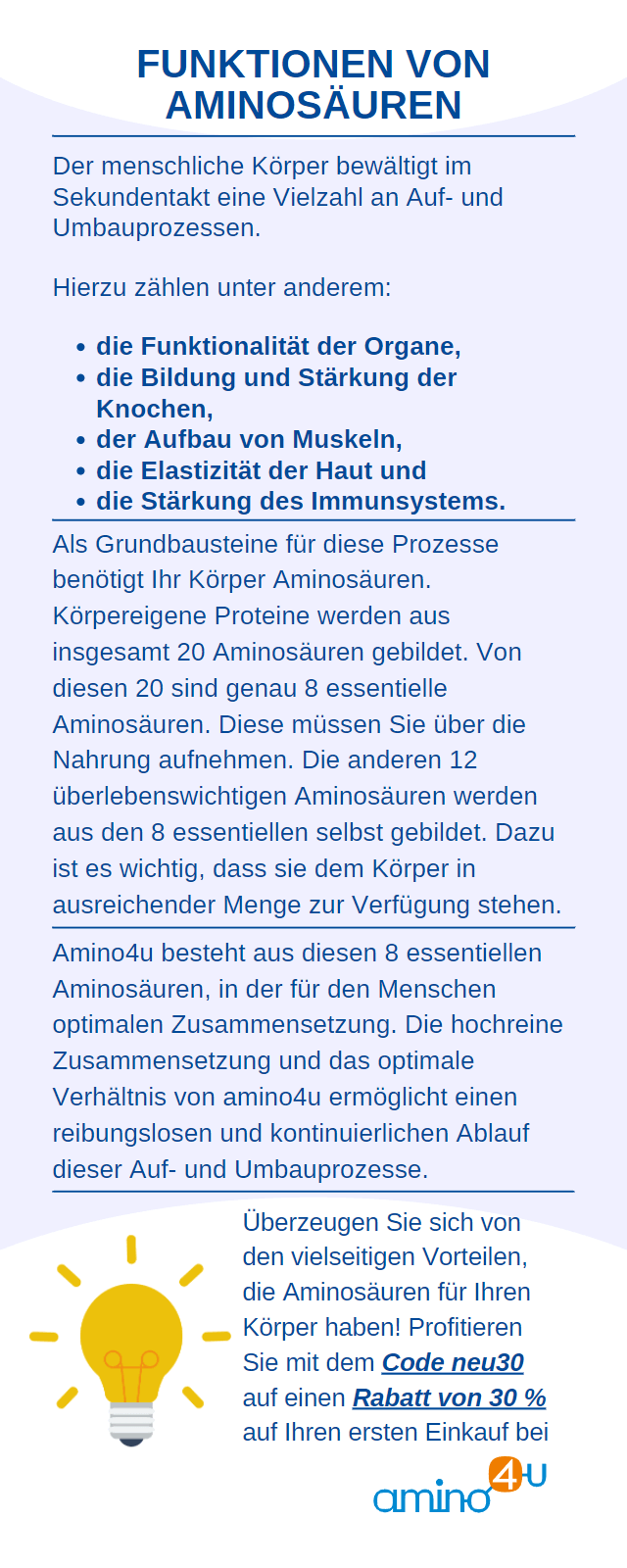It's frustrating: you've been doing outdoor sports and training in weight training for some time. When you look at the scales, you expect the pounds to finally fall away. At least from your point of view you should maintain the weight. Nevertheless, the scales show weight gain. This has been happening to you for a few weeks in a row now.
Gaining weight despite exercising can be quite frustrating.
You ask yourself a lot of questions. Is a break from sports indicated? More endurance sports than weight training? Don't despair. Many of us have an experience similar to yours. There can be a number of reasons why you are gaining weight despite being physically active . Let's take a closer look at the problem together and find starting points for a solution to the problem.

Weight gain despite exercise
We almost instinctively associate fitness level with our body weight. An assumed ideal weight , our well-being and our fitness are only partially connected. Weight is not the same as weight. Just as the BMI (Body Mass Index) alone is not meaningful when it comes to body weight.
In order to make more precise statements, we have to look at how body weight is made up, for example. Do muscles determine a large proportion of our body weight or is body fat the decisive factor? How do we eat? How efficient is our metabolism? How long have we been training?
Have we recently intensified our training or taken up extreme strength training ? What age and phase of life are we in? If we answer these questions honestly, we can better understand how physical activity and weight are related.
Losing weight is a complex process
If we could lose weight quickly and easily with a little exercise and a slight adjustment to our eating habits , no one would bother to write books, blog posts and news feeds on the subject. In this case, diets and nutritional advice would not be of interest to most people.
As we know, the opposite is true. Losing weight and building muscle proves to be a difficult task. Many of us struggle with our own body weight for a long time because the pointer on the scale shows more and more kilos. It is not uncommon for us to react with a short-term, strict sports program and hope to achieve weight loss results as quickly as possible .
Lose weight with strength training , lose kilos with running - apparently everyone has their own idea of how sporting training sessions have a positive effect on their own body weight. In the end, we realize that losing weight is not such an easy thing . It's about more than a little exercise and more than a small change in eating habits.
What factors influence weight gain despite exercise?
We often read in diet guides and magazines that we can lose weight very easily. All we would have to do is consume fewer calories than we burn . This seems like a simple thing if we are willing to keep track of our calorie intake for a while.
In addition, sporting activities should ensure that we burn more calories. The experiences of countless people show us that these simple calculations for our body weight often don't work. Why is that? There are other sizes that change our body weight and determine whether we gain or lose weight.
These include, for example:
- Hormones and other messenger substances, thus indirectly our age
- the metabolic function
- the composition of our intestinal flora
- our diet
- our lifestyle
- the blood sugar level
- our current body weight
- the condition of the muscles
Muscles weigh more
Have you ever wondered why professional bodybuilders sometimes follow such rigorous nutrition programs ?
These strength athletes are constantly active and often train very intensively. Why do you need sophisticated diet rules? Bodybuilders know from experience that strength training and losing weight at the same time don't work. First of all, muscles are heavier than fat. On the other hand, we use energy in our muscles even when we are resting.
When strength athletes shape their bodies the way they want, they alternate phases of gaining and losing weight. This is a complex challenge. That's why strength athletes have rigid nutritional rules. These can hardly be integrated into normal everyday life and therefore do not serve as a role model for us.
But we can take some insights from strength athletes:
- Sporting activities and more muscle do not automatically ensure that we lose weight.
- Even with physical training, our diet still matters.
- Muscle initially weighs more than fat. Nevertheless, we need muscles to increase our metabolic function and energy consumption. The pointer on the scales will skyrocket, especially in intermediate phases when it's initially about building muscle.
More kilos despite exercise - how does that fit together?
In the next sections we will describe in more detail 5 possible reasons that can be responsible for the plus on the scales during periods of physical activity.
1. The influence of sex hormones and other messenger substances
Women going through menopause often complain that they exercise, don't eat more than before , and still gain weight continuously. The impression is not misleading. Between the ages of 50 and 60, women gain an average of 0.7 kg per year. Similar values apply to men, but are not attributed to a life period as drastic as menopause .
The problem with this development of body weight is that the additional padding tends to be located in the middle of the body and consists of body fat. In women , the male sex hormone testosterone is responsible, among other things, for this changed fat distribution.
Since female sex hormones are no longer released during menopause, testosterone increases its influence. The male sex hormone now ensures that body fat is particularly noticeable in the middle of the body.
Water retention in conjunction with hormonal changes, as well as changed levels of thyroid hormones, can lead to increased weight.
In many phases of life, our bodies release increased levels of stress hormones due to modern, hectic lifestyles. If we constantly have the stress hormone cortisol in our blood , we also gain weight. Cortisol is supposed to ensure that we quickly have energy reserves in our body.
Our biology does not plan for the hormone to be constantly on the move in the organism. Physical activity can be helpful in coping better with hormonal changes and derailed stress hormones. However, we usually have to be patient until we lose weight .

2. Metabolism
At some point, many of us become so frustrated with weight problems that we resort to one crash diet or another. To their horror, they discover that shortly after the starvation diet they weigh more than before. This can happen even if you have been avidly running and weight training while on calorie restriction.
How can we gain even more weight even though we eat a lot less and train particularly intensively? The yo-yo effect is responsible for this increase in weight after a crash diet .
Two elements determine this effect:
- Due to the greatly reduced calorie intake, which seems like starvation for our body, our metabolism works on a low note. The moment we increase calorie intake even slightly, metabolic function does not intensify. On the contrary, we consume more calories again and our metabolism continues to work economically.
- Often we don't pay attention to protein intake when we go on a radical diet. Amino acids and protein provide our muscles with the building material for growth. If we radically reduce our calorie intake and protein intake, our body uses the protein present in the muscles. Muscles are broken down, so we use less energy. The yo-yo effect catches up with us as soon as our calorie intake increases again.
3. The intestinal flora
The microbiome in our intestines consists of countless microorganisms such as bacteria and fungi. Many are good for us and increase our well-being . Others are harmful to our health. The composition of microorganisms is as individual to each person as their fingerprint.
Only in the last few years and decades have scientists recognized the important role the microbiome plays in our health. It is so significantly involved in various perceptions, bodily functions and sensations that experts often speak of a second brain in the intestine. Modern scientific studies show that the composition of microorganisms in the intestine influences body weight.
If the “ wrong microorganisms ” live in our intestines, this can lead to weight gain. The composition of microorganisms changes in many people as they age. Nutrition also plays a big role here.
Many microorganisms rely on the supply of fiber in order to multiply. If the composition of our food is unfavorable, the distribution of microorganisms in the intestine can promote weight gain despite outdoor sports and endurance sports .
4. The blood sugar level
Blood sugar levels are closely linked to body weight. If we develop insulin resistance over the course of our lives, more and more sugar that has not been absorbed into the cells circulates in the blood. It is stored primarily in the liver as fat.
The term insulin resistance refers to a process in which the insulin-secreting cells in the pancreas become increasingly insensitive to the demand for insulin. Insulin is a hormone that ensures that sugar gets into our body's cells, where it is available for energy production .
We can influence insulin release and blood sugar levels through physical activity. However, if we have already developed a fatty liver and only start training again after a break from sports, changes in the sensitive balance between insulin release and sugar consumption only occur gradually. Here the scale can display more kilos for a long time until the balance is restored.

5. The diet
How our eating style affects our weight is a particularly complex topic for many of us. Most people know what a healthy diet looks like. Food that is as natural as possible , no added sugar, no excessive fat - this is what the ideal diet looks like. However, most of us don't get anywhere with these principles in the long run and gain weight, especially as we get older.
The reasons for this are diverse:
- They don't know how many calories we consume per day.
- We also have no knowledge about the amount of calories that would help us lose weight.
- We overestimate the amount of calories burned through physical activity.
- The necessary period of time that we need to lose weight is longer.
- We see losing weight and building muscle as a simultaneous process.
- We don't yet understand that amino acids and losing weight are linked.
Building muscle and losing weight are separate processes in time
We have already mentioned bodybuilders and their ambitious diet programs above. These professional athletes are very experienced in the area of strength training. That's why they know that there is a phase for building muscle and a phase for losing weight . Strictly speaking, the two do not coincide in time and require different nutritional habits in the professional sector.
If we follow the experiences of the professionals to some extent, we know that we don't lose weight immediately with strength training. We need a certain amount of time to build more muscle . These muscles will later ensure that we use more energy even at rest. During this build-up phase, more kilos may show up on the scales.
In a subsequent phase we can continue to work on our calorie turnover. If we reduce calories during this period, we must ensure that we maintain our muscles . We can do this if we specifically supply protein and essential amino acids - especially during a calorie-reduced diet.
In addition , sporting activity should not be a short-term affair . We have to permanently integrate them into our everyday life and our lives.
Why are protein and amino acids so important?
You won't lose weight with amino acids alone. However, without protein and amino acids, weight loss becomes increasingly unlikely. Without enough protein, your body has no building material to build muscle . Protein building blocks are also starting materials for various other important substances in the human body.
For example, an important thyroid hormone is also created based on an amino acid. The entire energy metabolism is therefore dependent on amino acids and proteins . Therefore, you should not only take your protein needs into account in diets and special nutritional programs .
An average value of 0.8 grams per kilogram of body weight is repeatedly given for daily requirements. In this context, keep in mind that the need can increase with age, under stress, during and after illnesses and also through sporting activities. The values here can increase to 1.4-1.6 g/kg of body weight.
We've seen in this article that weight gain despite exercise doesn't just have something to do with diet and physical activity. If we want to lose weight permanently, we have to influence various regulatory areas in the body. We and our bodies need enough time for this. Be patient and exercise regularly! Eat a balanced and healthy diet and you will soon see success.




